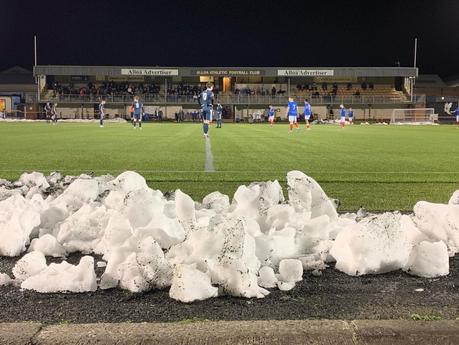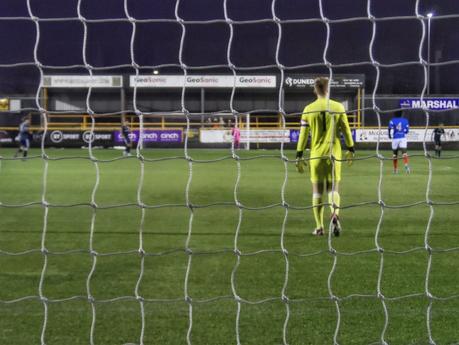Every season someone, somewhere in the professional game will raise the idea of Premier League B teams being allowed to play in the English pyramid. It’s not enough for some of these B teams to be allowed to play in the Football League Trophy, a competition that is derided by most and often “attracts” record-breaking low attendances in the group stages.
North of the border some Premiership sides enter their B teams into a similar competition, the Scottish Challenge Cup, this season sponsored by Tunnock’s but the two Old Firm clubs have been allowed to put their Under23s into the Lowland League, one of the feeder leagues into the Scottish Football League for a trial season. The agreement was part of a wider proposal to restructure the professional game that would see “colt” teams such as Rangers and Celtic’s Lowland League squads being accepted into the professional structure.

That is still awaiting approval, with some understandable opposition to the move, which may mean the two clubs may find themselves without regular competitive football next season. But for now both are competing at the top end of the Lowland Table although some distance from league leaders Bonnyrigg Rose Athletic who have dropped just 10 points so far from 27 games and look destined to reach the play-offs for a spot in next season’s Scottish League Two. Not that it really matters for either as they cannot be promoted (or relegated)
With a number of the sides sharing facilities with SPFL clubs, Friday night games aren’t uncommon in the Lowland League. With Alloa Athletic hosting Cove Rangers on Saturday, tenants Broomhill moved to Friday night to host Rangers B. The club were formed as BSC Glasgow back in 2014 off the back of an extensive community programme and as a route into senior football for their pathway players. In the summer of 2021, Broomhill split from BSC Glasgow, retaining their place in the Lowland League, hoping to better their 4th place finish in 2021.
There is a catch 22 situation when it comes to development sides. The top professional clubs have stockpiled good young players for years, often sending them out on loan for seasons at a time before releasing them when they reach 23. For many of these players they will have been at a club for ten years or more before they are released, so the club can bring in the next crop of wannabes. Most promising youngsters will have made the first team squads by the age of 21 these days and so those still waiting, do so in a strange no man’s land of Development leagues, playing against similar teams, similar players with similar futures.
But for the promising players it doesn’t do them any good to be sitting on the bench come 3pm on a Saturday (or whenever they play for the TV cameras). As part of their development they need to be playing regularly, against professional players.
And herein lies the issue that clubs all the way from Step 4 upwards face. With limited resources (pitch time, coaches and even kit) many clubs can’t maintain a B/Development/U23s side which leaves a gap between players coming out of Under18s sides and first team squads. Down at Lewes we have had many promising youngsters, some of which have gone on to today be playing in the professional game such as Fin Stevens at Brentford and Ricky Aguiar at Swindon Town. They’ve stood out as 18 year olds but for a number of reasons weren’t given the chance in the first team. So they moved away and got their chance at other clubs and worked their way up.
The concept of a B team bridges the gap if they play against senior rather than junior teams. Brentford are one of the growing number of professional clubs that has abandoned the concept of a traditional academy, putting focus and resource into their B team which is used as a recruitment vehicle for players who have been released at the end of that U23s season. They then invest time and resource at polishing some of those unseen diamonds.
For sides, like Broomhill, they use the games against Rangers and Celtic B to benchmark their progress. A win against these “elite” squads is a major feather in their caps. Whilst the technical ability of some of the full-time Rangers players was clear to see, the determination and pressing by the part-time Broomhill players made for a close game.

There’s clear benefits in games like this for both sides but it’s important that B sides aren’t used at the expense of legitimate progress of other sides. Is there more benefit in Arsenal U23s playing in the EFL Trophy or one of the National League sides who are in many instances on a par, or even playing/being run at a higher level than EFL sides? Why should a professional side get priority over other clubs who have worked their way up the pyramid.
Whilst this appears to be a one season experiment in Scotland, there is a danger that the league structure will be expanded for the wrong reasons, driven by a desire to placate the minority rather than thinking of the long term impact on Scottish football in general.
Advertisement
